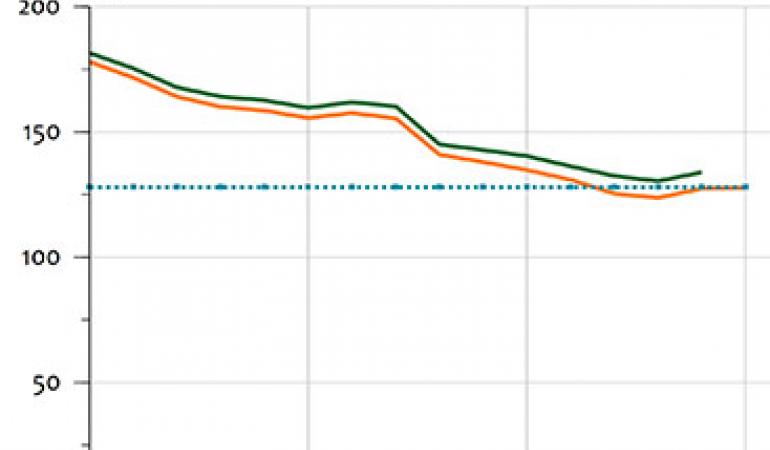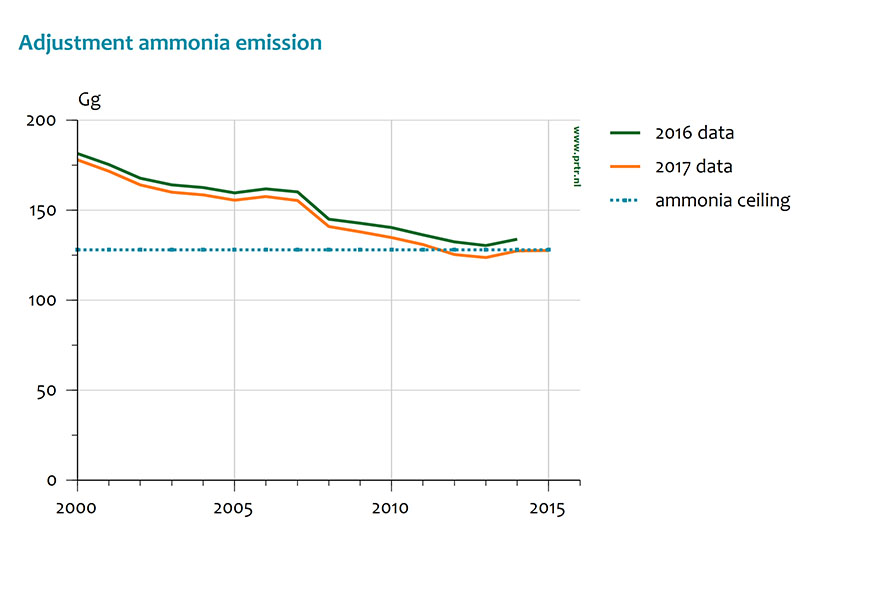
In 2015 slightly more ammonia was emitted in the Netherlands than in 2014 and the ceiling set by the European Union was met (128 kilotons). Both cattle numbers and fertilizer use increased, whereas low emission housing systems for pigs and poultry partly countered this. RIVM and partner institutions draw these conclusions in the Informative Inventory Report 2017.
Total ammonia emissions between 1990 and 2015 have been adjusted downwards. This is because new insights have been made into the data used to calculate emissions, called emission factors. For example, from 2008 onwards, the annual amount of ammonia emitted by fertilizer use was 4 kilotons lower than previously calculated. The new insights were recommended by an international scientific review, performed at the request of the Minister for Agriculture.
Other substances
Emissions of nitrogen oxides, sulphur dioxides and non-methane volatile organic compounds continue to decrease slightly. Therefore, the Netherlands are complying with the ceilings in this regard. Besides the substances mentioned above, the report also includes emissions of carbon monoxide, particulate matter, heavy metals and persistent organic pollutants. The emissions of most of these substances have decreased during the 1990 – 2015 period. The downward trend may, in particular, be attributed to cleaner fuels, cleaner car engines and to emission reductions in industry.
In the Informative Inventory Report RIVM and partner institutes collaborate to annually analyse and report emission data. This is obligatory to EU (European Union) member states. The analyses are used to support Dutch policy.
